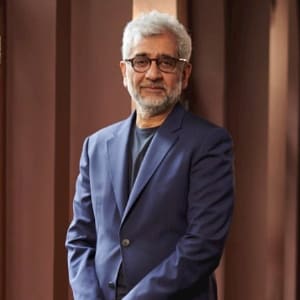Darshan Mehta President and CEO, Reliance Brands Ltd.

Darshan Mehta joined PwC in the early 1980s at Mumbai and says that the firm was a ‘natural choice’ for him to start his career. After completing his articleship at PwC in 1984, Darshan joined the Lalbhai Group as the CFO and went on to serve as CFO of Trikaya Grey Advertising (India) and as the CEO of Arvind Brands Ltd. Between 2006-07, he also served as the CEO of VF Arvind Brands Pvt. Ltd. He currently is the President and CEO, Reliance Brands Ltd. Darshan has over 30 years of experience in the finance and retail industry in strategic leadership positions. We met up with Darshan to chat about the dynamics of the fashion industry, on what it takes to nurture creativity in a business environment and how PwC still plays a role in his life. Darshan is married and has a son.
- You have launched many premium international brands in India. Do you think that the Indian consumer has evolved?
The consumer in India is evolving by the hour. Our demographics getting younger, and we see the rise of a liberal, younger generation eager for new ideas and choices, as our target customer base. This is particularly true in my line of business which is fashion. The new Indian consumer is experimental and cosmopolitan for he or she is typically well read and well-travelled. They think like their counterparts in the Western world and aspire for a similar life including the best of fashion labels. - What are the challenges that the industry faces today? Does it look promising for India?
The outlook is hugely promising. We are in the mid to high end fashion segment and for us the journey is just starting. Sectors like telecom, automobile, etc saw a great metamorphosis in the past fifteen years. For the fashion industry the curve is just beginning. I believe that the next decade will be a game changer for us and create a lot of headroom for growth. - How do you nurture creativity in your space?
This is difficult to encapsulate in a few sentences. But I believe that one needs to create an ecosystem or a box of magic as we call it in Reliance Brands which can nurture creativity on a sustained basis. In a consumer facing business like ours, we tend to take up a lot of conventional B2B paradigms and flip them over to derive interpretations which are more meaningful in our situation. For instance, we call our corporate office “the tail office” and our stores “the head office”. After all, in our business, we need to have our faces to the consumer and our backs to the boss. - Which book has inspired you the most and why?
Though I’m not an avid reader of books on a particular domain, which in my case would be fashion and retail, but I do enjoy reading varied genres. I’ve been deeply impacted by ‘Siddhartha’ by Hermann Hesse which I read recently. The book describes the spiritual journey of a man named Siddhartha, during the time of Gautam Buddha. It was first published in 1922 in German and went on to acquire a cult following which remains intact even ninety years later. - Why did you choose PwC to start your career with? What key skills or values do you think, PwC could instil in you?
In the early 80s when I embarked on my career, there was no concept of the Big Four. The existing firms included AF Fergusson, Lovelock & Lewis and Price Waterhouse and the family grown Indian firms. Price Waterhouse was a natural choice for me because the Mumbai office which was then relatively smaller was known to be flexible and not monolithic. Also, I knew some of my friends had joined there as article clerks. Today I look back at the years spent in PwC as some of the finest of my life. They were magical in many ways; I got to work with a fabulous team and that helped me learn a lot. As an article clerk I used to put in 150 compensatory hours every month. Even in those days, PwC had a very open culture where one could talk to a partner or team leader. It was a stimulating environment and extremely cutting edge for its time. - Given the distinguished legacy that PwC has, how do you think the alumni can come together to collaborate and create higher standards of professionalism?
The PwC network comes alive with its people. I for one am very happy that the alumni programme is actively reaching out to former colleagues. One looks forward to reconnecting with old PwC colleagues for sentimental and nostalgic reasons and for professional networking. I feel, we are on the right track and going forward, all we need to do is provide a framework and create new sparks, like most B- school networks and for the rest we should encourage the network to grow on its own.













